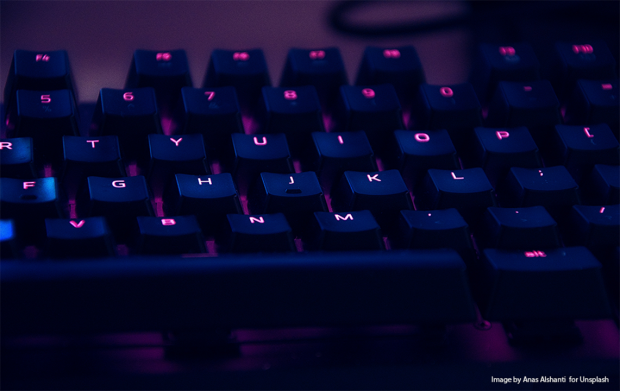 The announcement of the National Cyber Force has put Britain's cyber capabilities firmly in the spotlight. But Strategic Command has been leading defence on cyber much longer than that. We asked people on the inside of the cyber world to share their stories in their own words.
The announcement of the National Cyber Force has put Britain's cyber capabilities firmly in the spotlight. But Strategic Command has been leading defence on cyber much longer than that. We asked people on the inside of the cyber world to share their stories in their own words.
Due to the often secret nature of their work we cannot share their picture or their full names.
This time, we join Harry whose National Cyber Force journey got off to an unexpected start as he joined just as the covid-19 pandemic began.
I joined the British Army in 2019 having previously worked in a technical profession. For me, the military offered the opportunity to contribute to operational duties while engaging in demanding work that would develop me as an individual. While I joined with an open mind as to where I would best fit into the military, I was hoping to establish myself in a trade that would favour a technical background.
I was completely unaware that cyber was a domain that we operate in, so when the opportunity arose to sit a two-part cyber assessment test, I immediately put my name down. With ‘cyber’ being such a loosely defined term but widely used buzzword, I’d be reticent to say that curiosity wasn’t at least part of why I was so eager to attend the assessment board. A few weeks after the assessment I was informed that I had been selected and that my first posting would be to a cyber team.
Shortly after joining the team, the Covid-19 pandemic took off and saw the movement to work from home if it was feasible. As someone with little prior experience in the cyber domain, this provided the perfect opportunity to study and attend virtual courses so that I could hit the ground running upon my return to work. While it is a fairly daunting task to learn about cyber with so much to the topic, the military has a fantastic training pipeline for individuals to gain the baseline understanding needed to work in a cyber trade. It appeared that military cyber training was rapid to adapt to the situation and get as much out of its troops working from home.
Throughout training for my role, there has been a large focus on understanding the processes and technology that are associated with Information Technology. But cyber is more than just the underlying technology, it’s also about the people behind the processes and technology. I think it will be interesting to see how military cyber continues to develop the human and behavioural aspect of cyber and what this will mean for cyber affiliated trades within Defence.
With cyber remaining a relatively new area of interest within Defence, there’s plenty of scope to specialise, develop core skills and contribute to the support of military activities. Furthermore, the growing dependence on remote working and IT has shone a light on cyber threats, highlighting the relevance of Defence’s interest in this domain of warfare.
There are both Regular and Reserve cyber roles in the Army, Royal Navy, Royal Air Force.
For more information on Army roles, click here.
If you are interested in joining the Navy, click here.
To find your force as a part of the RAF, click here.
There are also civilian cyber roles within the Ministry of Defence Civil Service.
You can sign up for a job alert on CS Jobs here. Simply create an account, select the Job Alerts tab and follow the on-screen instructions.
Leave a comment